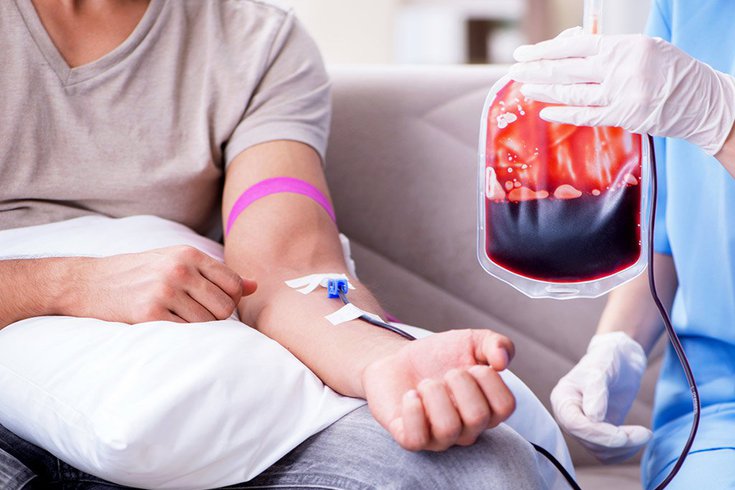
August 24, 2020
 Stefani Reynolds/Pool/Sipa USA
Stefani Reynolds/Pool/Sipa USA
FDA Commissioner Stephen Hahn announces blood plasma has been authorized as a COVID-19 treatment, Sunday, Aug. 23, 2020. President Donald Trump hailed the announcement as 'truly historic.'
The U.S. Food and Drug Administration has authorized blood plasma from recovered COVID-19 patients to be used to treat others infected by the coronavirus.
But the emergency use authorization, issued Sunday, has drawn the criticism of some medical experts.
Following a months-long review process, the FDA deemed the use of COVID-19 blood plasma met the statutory criteria for an emergency use authorization. The distinction makes it easier for some patients to receive the treatment, but it is not the same as full FDA approval.
The FDA concluded the potential benefits outweigh the risks of the therapeutic, which has been undergoing various studies, including one at the University of Pennsylvania.
Convalescent plasma therapy transfuses the plasma from a recovered COVID-19 patient into a sick patient, providing them antibodies to fight the coronavirus.
Possible side effects include allergic reactions, transfusion-associated circulatory overload, transfusion-associated lung surgery and other transfusion-transmitted infections.
FDA Commissioner Dr. Stephen Hahn released a statement saying early data from clinical trials was "promising."
"The data from studies conducted this year shows that plasma from patients who’ve recovered from COVID-19 has the potential to help treat those who are suffering from the effects of getting this terrible virus," Hahn said. "At the same time, we will continue to work with researchers to continue randomized clinical trials to study the safety and effectiveness of convalescent plasma in treating patients infected with the novel coronavirus."
But there isn't uniform agreement within the scientific community that an emergency use authorization was appropriate.
Officials from the National Institutes of Health tried to stop the emergency use authorization by arguing that more data was necessary to determine the therapy's effectiveness in COVID-19 patients, The New York Times reported.
Other scientists, including Eric Topol, the founder of Scripps Research Translational Institute, decried the lack of randomized, controlled trials. Topol tweeted, "There's no evidence to support any survival benefit. 2 days ago FDA's website stated there was no evidence for an EUA."
Outrageous to listen to @realDonaldTrump @secAzar @SteveFDA claiming a 35% improved survival in an observational preprint study compared w/ late-treated patients. There's no evidence to support any survival benefit. 2 days ago FDA's website stated there was no evidence for an EUA
— Eric Topol (@EricTopol) August 23, 2020
During a news conference Sunday, President Donald Trump lauded the FDA’s emergency use authorization, calling it a "truly historic announcement" that "will dramatically expand access to this treatment."
Trump had pushed for the FDA to issue the emergency use authorization, citing a 35% decline in the mortality rate among COVID-19 patients who were given the therapeutic.
It's unclear where that figure comes from, but it appears to be based on a study conducted by the National Institutes of Health and the Mayo Clinic, according to STAT.
That study of 35,000 patients found plasma treatments reduce the death rate after seven days by 8.7% in patients treated early and by 11.9% in patients treated later. But it did not include a placebo group and was not randomized.
The emergency use authorization will remain in effect until it is no longer necessary to treat COVID-19. It could be revoked or revised if determined that it no longer meets the statutory criteria.
Hospitalized patients and health care providers must first be provided important information on the use of COVID-19 blood plasma, such as dosing instructions and potential side effects, before its administration.
Follow Pat & PhillyVoice on Twitter: @Pat_Ralph | @thePhillyVoice
Like us on Facebook: PhillyVoice
Add Pat's RSS feed to your feed reader
Have a news tip? Let us know.